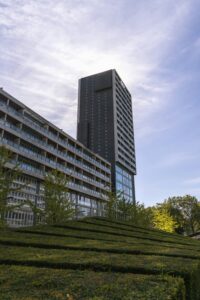At Bakhtiari & Harrison, we are committed to safeguarding the interests of investors, particularly senior citizens who require preservation of capital and liquidity. Recently, we have launched investigations into several Non-Traded REITs also known as Real Estate Investment Trusts that have come under scrutiny due to significant redemption issues and potential misrepresentations by brokerage firms. These REITs include:
- Blackstone Real Estate Income Trust (BREIT)
- Starwood Real Estate Income Trust
- Hines Global Income Trust
- InPoint Commercial Real Estate Income
Non-Traded REITs A Timeline of Redemption and Distribution Issues
Blackstone Real Estate Income Trust (BREIT)
- 2022: BREIT faced massive redemption requests totaling $9.9 billion, representing 15.2% of its total NAV. These requests often exceeded the monthly and quarterly caps on redemptions, typically set at 2% of NAV per month and 5% per quarter.
- 2023: Despite significant redemptions, BREIT continued to manage its portfolio, though it often hit its redemption limits, causing concerns among investors about liquidity.
Starwood Real Estate Income Trust
- 2022: Similar to BREIT, Starwood also faced substantial redemption requests, frequently hitting its quarterly redemption caps.
- 2023: The trust has continued to experience high levels of redemption requests, maintaining tight control over liquidity to manage investor withdrawals effectively.
Hines Global Income Trust
- 2022: Hines Global Income Trust saw $47 million in redemption requests, which amounted to 2.1% of its NAV. The trust imposed limits on redemptions to preserve capital for all investors.
- 2023: Redemption pressures remained high, with the trust carefully managing its liquidity and investor communications to navigate the challenging market conditions.
InPoint Commercial Real Estate Income
- 2023: InPoint recorded an annualized negative return of 7.53% in the second quarter, reflecting the broader market challenges. The trust faced increasing redemption requests, which strained its liquidity.
Concerns Over Non-Traded REIT Due Diligence and Misrepresentation
Our investigations are focused on determining whether proper due diligence was conducted by the brokerage firms selling these REITs. There are growing concerns that brokers may have misrepresented the safety and liquidity of these investments, particularly to senior citizens. These REITs were often marketed as secure, income-generating investments suitable for conservative investors seeking capital preservation.
Impact on Senior Citizens
Senior citizens, in particular, were targeted with these investment products. Many were led to believe that these non-traded REITs were safe investments that would provide steady income with the flexibility to access their capital as needed. However, the reality has proven to be different. The restrictions on redemptions and the decline in asset values have left many investors unable to access their funds when needed, putting their financial stability at risk.
Regulatory Framework
Under the Financial Industry Regulatory Authority (FINRA) rules, brokerage firms have a duty to conduct thorough due diligence and ensure that their recommendations are suitable for their clients’ investment profiles. According to FINRA Notice to Members 03-71, firms must have a reasonable basis for believing that a recommended investment is suitable for at least some investors based on a thorough understanding of the product.
Non-Traded REITs, What To Look For
- Due Diligence: Whether brokerage firms conducted proper due diligence before recommending these REITs to investors.
- Misrepresentation: Instances where brokers may have provided misleading information about the safety, liquidity, and performance of these investments.
- Impact on Investors: The extent to which these misrepresentations have affected investors in non-traded REITs, particularly those requiring liquidity and capital preservation.
Why Bakhtiari & Harrison? 
If you believe you have been misled about the safety and liquidity of these non-traded REITs, or if you have experienced difficulties in redeeming your investments, you may have a case for recovering your losses. At Bakhtiari & Harrison, we are dedicated to holding brokerage firms accountable for failing to meet their regulatory obligations and protecting the rights of investors.
For more information or to discuss your situation, please contact us at Bakhtiari & Harrison. We are here to help you navigate your legal options concerning non-traded REITs and pursue a FINRA arbitration claim to recover your losses.
